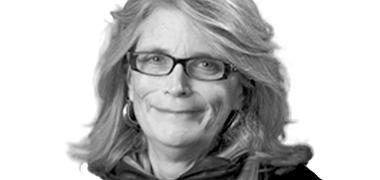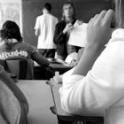We are celebrating the 10-year anniversary of Debats d’Educació by giving the educational community the opportunity to air its views

I run an organization in Canada that works to support public education by engaging parents and citizens, producing research, and working with policy-makers to ensure that all students have an equitable chance for success. I care passionately about public education and its impact on our society.
The three things I’ve learned
It’s what parents do at home that matters most for student success
We have a tendency in education to focus on the parent involvement that we can see: parents volunteering in the school, parents on committees, parents advocating for change etc.
But thirty years of international research shows that it is what parents do at home that matters most for student success. The question is how can we get the message to parents about the engagement that matters most? Rather than focusing all their effort on bringing parents into the school, schools need to develop better ways to communicate with parents at home. Parents need to know that more important than volunteering, limiting TV time or even monitoring homework, there are four things that they can do that make the biggest difference: have high expectations of your child; talk to them every day about school; help them build good work habits and attitudes and read to them or with them as often as possible for as long as possible.
Communication, collaboration & strong relationships create vital bridges between schools & families
Strong relationships between families and schools have a positive impact on students, but there are some core elements that schools must focus on to make those relationships effective.
•The relationships must be collaborative. Collaboration between families, teachers and others at school is linked to improved attendance, better student engagement, more positive interactions.
•Communication must be two-way. Two-way communication builds trust between teachers, students and parents. Greater trust and more effective communication make it easier for students to move between home and school with a positive attitude about both, which supports resilience and achievement.
Schools cannot passively sit back and wait for families to come to them. Schools must take the lead to ensure that the tools they use are relevant for all parents, and that they actively tackle challenges such as communicating with parents who cannot make it into the school, or who speak different languages.
Who gets to be at the table?
Parents and families have key roles to play in the education system – with their own children, with their children’s schools and in education governance. Parents can be advocates, commentators on policy, and vital advisors to educators, policy-makers and the political system.
But when we think of parents’ and families role in governance, it is important to remember that capacities to participate are not currently distributed equally among all families. Doors open to those with the social capital to open them, and the voices that are most often heard in education tend to be those who are long-time residents, university educated and middle- or upper-middle class. For many families, the education system comes with barriers to their involvement – either at the individual or the governance level.
Our goal should be to work to build greater capacity so that all parents and families can have a voice in the system, while keeping our “eye on the prize” of equity of access and equity of outcomes.















 The texts published on this website are, unless otherwise indicated, covered by the Creative Commons Spain Attribution 3.0 licence. You may copy, distribute, transmit and adapt the work, provided you attribute it (authorship, journal name, publisher) in the manner specified by the author(s) or licensor(s). The full text of the licence can be consulted here:
The texts published on this website are, unless otherwise indicated, covered by the Creative Commons Spain Attribution 3.0 licence. You may copy, distribute, transmit and adapt the work, provided you attribute it (authorship, journal name, publisher) in the manner specified by the author(s) or licensor(s). The full text of the licence can be consulted here: